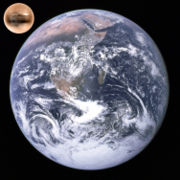is Pluto a planet now?
By asheshpatel
@asheshpatel (178)
India
6 responses
@cr1st1nel (3564)
• Romania
16 Dec 06
I don't know why you are saying that pluto is not a planet. Every time i heard of it was a planet. Has it changed it's status why ? Come back with more explanations. Good luck!
1 person likes this
@subhadiproy (847)
• India
16 Dec 06
no...i don think it s considered as a planet anymore.
1 person likes this
@mashimaro (1094)
• Philippines
16 Dec 06
Pluto's diameter is about 18% that of Earth.Today, astronomers have endorsed a proposal about the definition of the word "planet". As a consequence, our solar system now counts only 8 planets. They are Mercury, Venus, Earth, Mars, Jupiter, Saturn, Uranus and Neptune. Pluto no longer meets the criteria and loses its planet status, but becomes the prototype of a distinct class of dwarf planets.
Ceres and 2003 UB313 also have been recognised as dwarf planets. Charon, which was previously in the run for promotion, did not meet the final criteria for a dwarf planet.
Some 2500 astronomers from over 75 countries gathered this week in Prague at the Congress of the International Astronomical Union (IAU) to decide on several issues like a formal definition of a planet. Previously, there was no definition and with the discovery of new objects beyond Pluto there was much need for a clear criterion. The scientists also discussed new research findings in their field.
Louis Friedman, the executive director of the Planetary Society in California said: "The classification doesn't matter. Pluto — and all Solar System objects — are mysterious and exciting new worlds that need to be explored and better understood."The final draft states: "A planet is a celestial body that
is in orbit around the Sun
has sufficient mass for its self-gravity to overcome rigid body forces so that it assumes a hydrostatic equilibrium (nearly round) shape
has cleared the neighbourhood around its orbit.
A dwarf planet is a celestial body that
is in orbit around the Sun,
has sufficient mass for its self-gravity to overcome rigid body forces so that it assumes a hydrostatic equilibrium (nearly round) shape,
has not cleared the neighbourhood around its orbit,
is not a satellite.
All other objects except satellites orbiting the Sun shall be referred to collectively as Small Solar-System Bodies."
Pluto did not meet one of the criteria for planet: its orbit is higly eccentric, causing it to overlap with Neptune's. The IAU has a dozen other objects similar to Pluto on its "watchlist" and is expected to announce new dwarf planets in the coming months and years.
Ever since its discovery by American Clyde Tombaugh in 1930, Pluto has been considered a planet, though its status has been questioned many times after it was discovered to be far less massive than earlier calculations suggested, and because of its many other eccentricities. As a consequence of the vote, many textbooks, encyclopedias and other sources will need rewriting.











